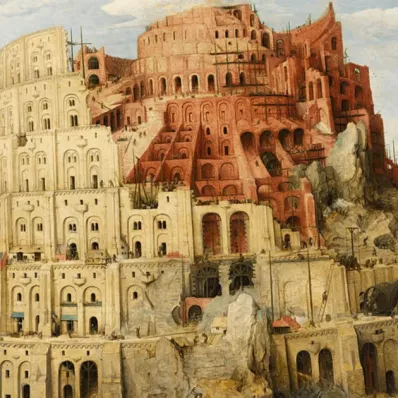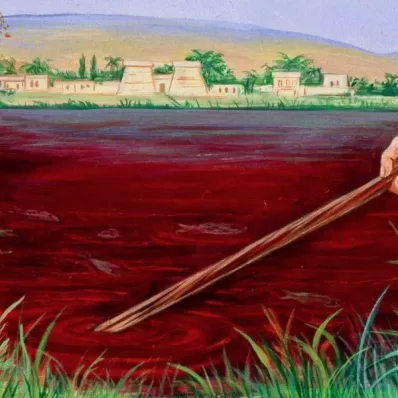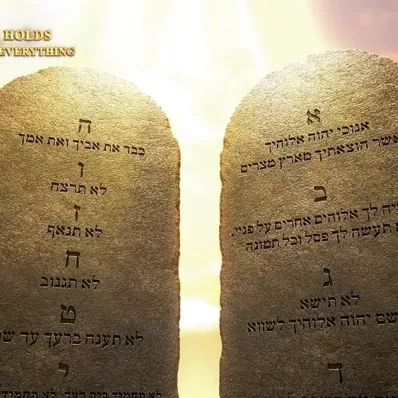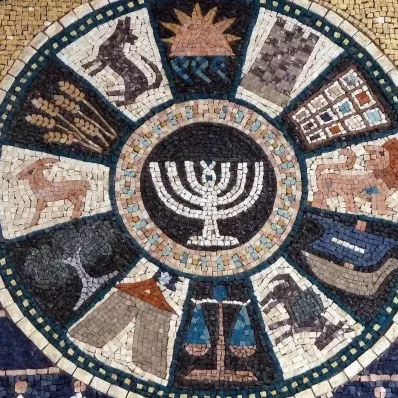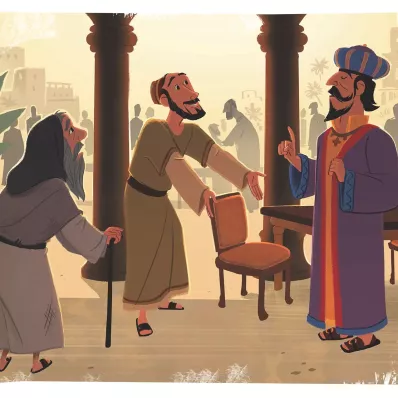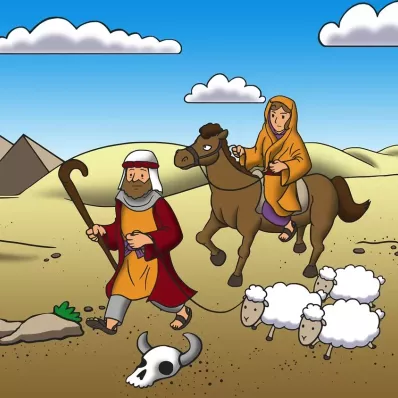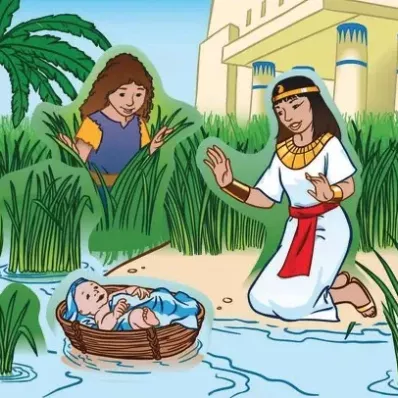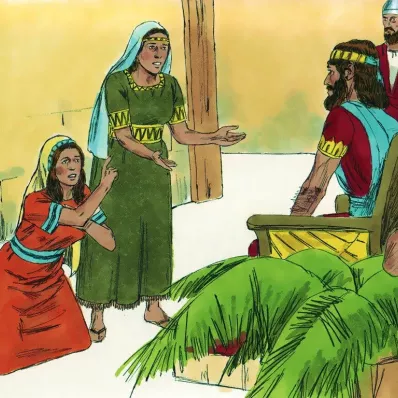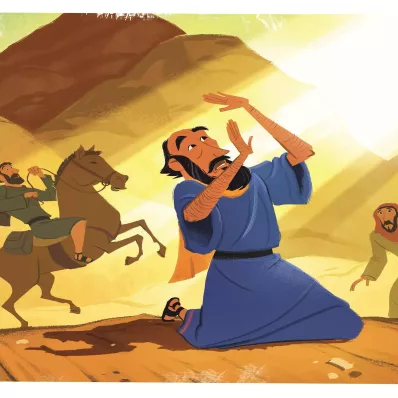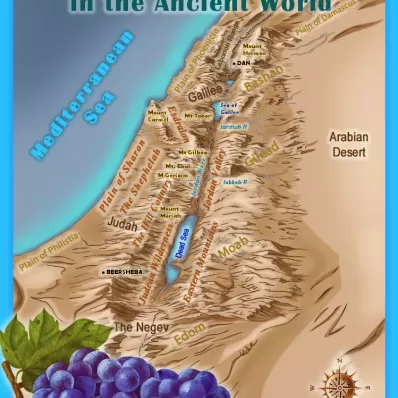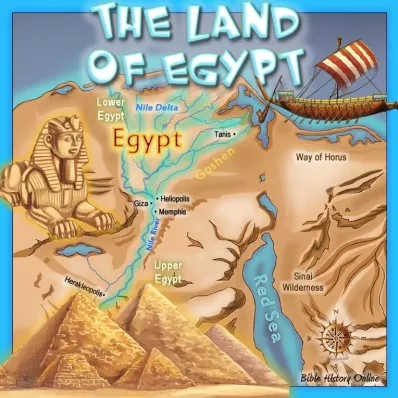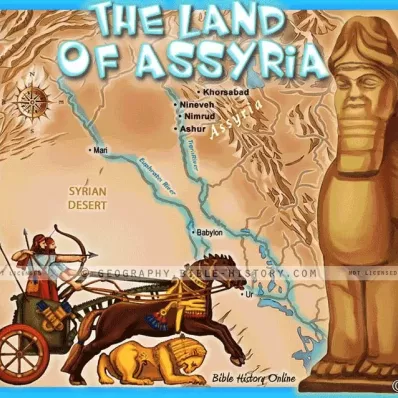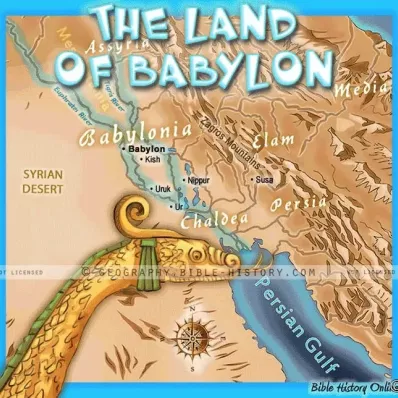Chaldea
The southern portion of Babylonia, Lower Mesopotamia, lying
chiefly on the right bank of the Euphrates, but commonly used of
the whole of the Mesopotamian plain. The Hebrew name is Kasdim,
which is usually rendered "Chaldeans" (Jer. 50:10; 51:24,35).
The country so named is a vast plain formed by the deposits of
the Euphrates and the Tigris, extending to about 400 miles along
the course of these rivers, and about 100 miles in average
breadth. "In former days the vast plains of Babylon were
nourished by a complicated system of canals and water-courses,
which spread over the surface of the country like a network. The
wants of a teeming population were supplied by a rich soil, not
less bountiful than that on the banks of the Egyptian Nile. Like
islands rising from a golden sea of waving corn stood frequent
groves of palm-trees and pleasant gardens, affording to the
idler or traveller their grateful and highly-valued shade.
Crowds of passengers hurried along the dusty roads to and from
the busy city. The land was rich in corn and wine."
Recent discoveries, more especially in Babylonia, have thrown
much light on the history of the Hebrew patriarchs, and have
illustrated or confirmed the Biblical narrative in many points.
The ancestor of the Hebrew people, Abram, was, we are told, born
at "Ur of the Chaldees." "Chaldees" is a mistranslation of the
Hebrew "Kasdim", Kasdim being the Old Testament name of the
Babylonians, while the Chaldees were a tribe who lived on the
shores of the Persian Gulf, and did not become a part of the
Babylonian population till the time of Hezekiah. Ur was one of
the oldest and most famous of the Babylonian cities. Its site is
now called Mugheir, or Mugayyar, on the western bank of the
Euphrates, in Southern Babylonia. About a century before the
birth of Abram it was ruled by a powerful dynasty of kings.
Their conquests extended to Elam on the one side, and to the
Lebanon on the other. They were followed by a dynasty of princes
whose capital was Babylon, and who seem to have been of South
Arabian origin. The founder of the dynasty was Sumu-abi ("Shem
is my father"). But soon afterwards Babylonia fell under Elamite
dominion. The kings of Babylon were compelled to acknowledge the
supremacy of Elam, and a rival kingdom to that of Babylon, and
governed by Elamites, sprang up at Larsa, not far from Ur, but
on the opposite bank of the river. In the time of Abram the king
of Larsa was Eri-Aku, the son of an Elamite prince, and Eri-Aku,
as has long been recognized, is the Biblical "Arioch king of
Ellasar" (Gen. 14:1). The contemporaneous king of Babylon in the
north, in the country termed Shinar in Scripture, was
Khammu-rabi. (See BABYLON T0000409; ABRAHAM T0000054; AMRAPHEL
T0000221.)

